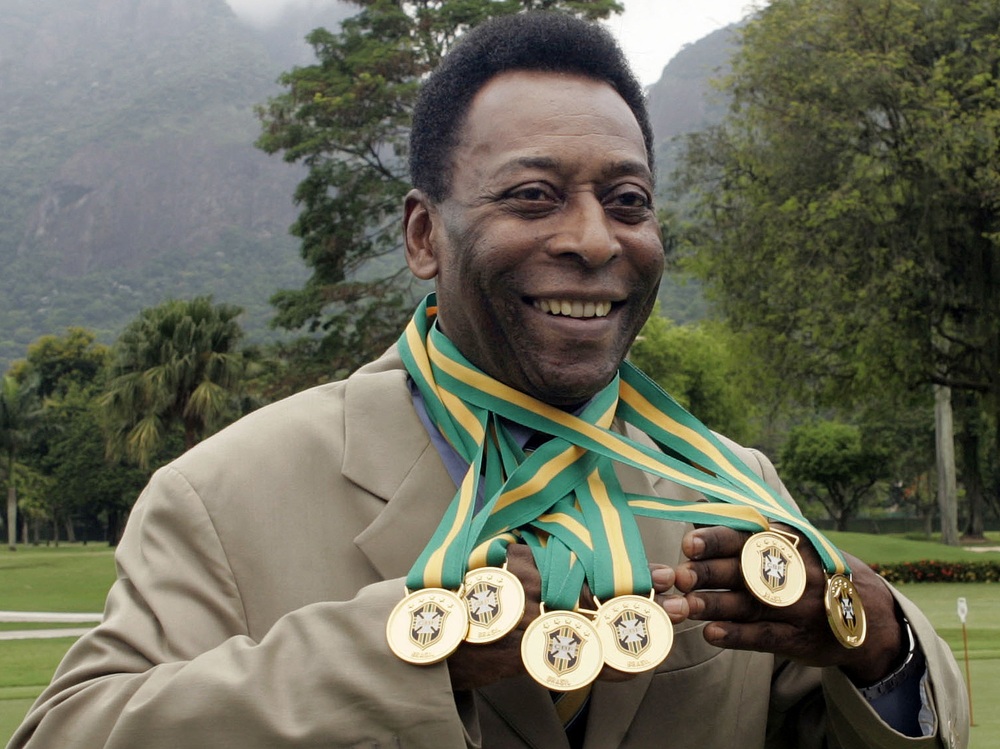
To sports writers and soccer fans, the word "Pelé" isn't just the nickname for one of soccer's greatest players but a synonym for being the best. Now a Portuguese-language dictionary is making that meaning official.
The Michaelis dictionary, one of Brazil's most popular, added "Pelé" to its online edition Wednesday, defining it as an adjective that can be used to describe "someone who is out of the ordinary, who or who by virtue of their quality, value or superiority cannot be equaled to anything or anyone."
One might say, "He is the Pelé of basketball," or "She is the Pelé of dramaturgy," the dictionary suggests.
Pelé, whose given name was Edson Arantes do Nascimento, died in December at age 82 after battling complications from colon cancer.
The star had reigned as king of the global soccer world since his 1958 World Cup debut. He remains the youngest player to ever score in the World Cup — let alone cinch the winning goal in a final game — which he did at age 17.
Over the next two decades, Pelé would go on to earn two more World Cup titles and score over 1,200 times, success so big that he's credited with growing the sport's international popularity. He counted Nelson Mandela and Desmond Tutu among his biggest fans, and his short stint with the New York Cosmos helped spark American interest in the game.
But nowhere claims to have more pride in Pelé than his home country of Brazil. It was in the small, impoverished town of Bauru where he first got his nickname playing in youth leagues.
Even Pelé himself wasn't sure where it came from, he wrote in a 2006 piece for The Guardian, but it may have been a play on Bilé, the nickname of a goalkeeper for the team Pelé's father played on.
"I can remember the name really bugged me at first. I was really proud that I was named after Thomas Edison and wanted to be called Edson," he said. "I thought Pelé sounded horrible. It was a rubbish name. Edson sounded so much more serious and important."
Now it's an official Portuguese term for exceptional performance.
Since the player's death, a Brazilian charity established to further Pelé's legacy had been leading the campaign to get the term added to the dictionary. With help from the sports channel SporTV and Pelé's former team, Santos, the Pelé Foundation gathered more than 125,000 petition signatures to push for the formal entry.
"The expression that was already used to refer to the best in what you do is immortalized in the pages of the dictionary," the foundation tweeted on Wednesday. "Together we made history."
It's not the first time Pelé's legacy has changed the very language of his home country.
A Portuguese sports term that translates to "plaque-worthy goal" refers to a time that Pelé blew past not one, not two, but six defenders to score, inspiring a two-minute-long standing ovation in Rio de Janeiro's Maracana stadium. A local sports writer was so moved that he arranged for a commemorative plaque to be affixed to the arena.
The plaque still stands today as one of countless memorials, murals and references to the star that exist throughout Brazil and the world.







